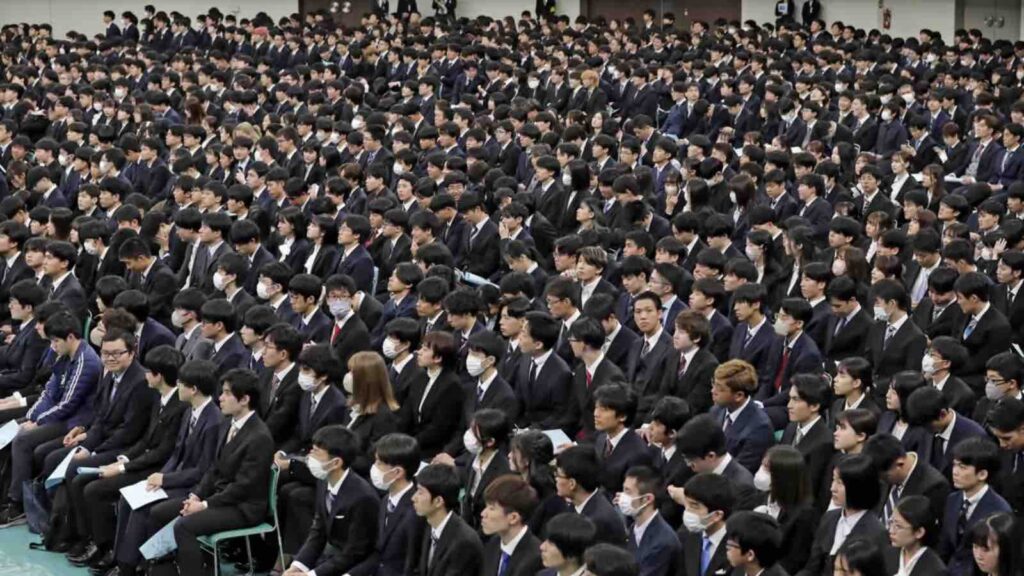Women at Japan’s top university demand change: ‘this has to end’
At Japan’s top-ranked university, the University of Tokyo, a stark gender imbalance persists: only one in ten researchers are women, and women make up just one in five students. In a country where women leaders are rare in business and politics, these figures reflect a deeper societal issue. Despite the prestige of the university, female students and researchers continue to face systemic biases and discrimination, often from those closest to them.
RELEVANT SUSTAINABLE GOALS



Chika Ezure, a master’s student at the university, encountered gender bias even from her own family when deciding to pursue higher education. “My parents said to me, ‘what’s the point of a girl going to graduate school?’” she recalled. The disappointment of such comments highlights a broader issue of gender disparity that women face in Japan’s academic institutions and society as a whole.
Confronting Bias: A Call for Change
In a bold move to address this long-standing issue, faculty members at the University of Tokyo recently launched a poster campaign aimed at challenging sexist remarks directed at female scholars. The campaign, titled “Headwinds,” spotlighted derogatory comments such as, “I prefer cute, silly girls over smart ones,” and “you’re a girl, so local college is good enough.” These statements reflect the entrenched attitudes that women in Japan face daily—both in academic settings and beyond.
“I read stories from students still scarred by these negative words, who had to change their career path because of them,” said Asuka Ando, a researcher at the university’s office for gender equity. “I thought, ‘this has to end.'”
The posters ignited a wave of online discussion. While many supported the campaign, some critics claimed that women simply do not apply for top universities or are not “clever enough.” These comments underscore the very biases the campaign seeks to dismantle.
A Deeply Rooted Problem in Japan’s Education System
Japan’s gender bias starts early, impacting girls’ academic trajectories from a young age. Ezure shared how a teacher once told her, “girls don’t need to be good at math,” leading her to focus on the humanities, despite a growing interest in technology. “I felt disempowered,” she said, reflecting on how such seemingly small remarks can derail potential and limit opportunities for girls.
The figures speak volumes: while 55% of students at the University of Hong Kong are women, 48% at the National University of Singapore, and 42% at Seoul National University, the numbers at the University of Tokyo lag far behind. This gap is particularly glaring in science, technology, engineering, and mathematics (STEM) fields, where Japan ranks the lowest among OECD countries in female student enrollment.
Despite Japanese schoolgirls outperforming many of their international peers in science and math, they remain vastly underrepresented in these disciplines at the university level. This imbalance is a symptom of a larger cultural issue where women are subtly, and sometimes overtly, discouraged from pursuing careers in STEM.
A Cultural Shift and the Scandal That Sparked It
The issue of gender discrimination in Japanese academia gained widespread attention in 2018 when a scandal erupted at Tokyo Medical University. It was revealed that the university had deliberately lowered the entry test scores of female applicants. Faculty members believed women doctors could not work long hours, leading to the deliberate exclusion of women from the medical field. A subsequent government investigation found that several other institutions had employed similar practices.
In light of these revelations, Japan has been forced to confront its deeply rooted gender biases. The University of Tokyo’s poster campaign is one of the most recent, and visible, efforts to address this issue.
For many women, such as 20-year-old student Hiyori Sahara, pursuing studies in male-dominated fields comes with its challenges. Sahara, who is studying at Tokyo University of Agriculture, shared how people are often surprised that she is in science. “They don’t mean it in a negative sense—it’s just that there are more men in the sector,” she explained. Yet, even in her high school years, she noticed subtle biases, with male students often favored in advanced classes.
These experiences are not isolated. Gender bias in education continues to shape the futures of women across Japan. Professor Ginko Kawano, a gender equality advocate at Kyushu University, warns that regular exposure to biased remarks can lead young girls to internalize the belief that they do not need to study or attend university. The risk is that the next generation of women may continue to accept these limitations as normal.
Japan ranks 118th out of 146 countries in the 2024 Global Gender Gap report, a clear indication of the work that lies ahead. While efforts like the University of Tokyo’s campaign are crucial steps forward, broader cultural and structural changes are needed to close the gender gap in education and leadership.
“There are many hurdles to overcome,” said Professor Kawano. But she remains optimistic about the future, noting that the poster campaign has sent a powerful message to women across the country: they do not have to accept gender discrimination as normal.
Lead image courtesy of Lorenza Cotellessa. all other images courtesy of Beagle Button.
You may also be interested in :
Climate Change Widens Gender Gap, UN Efforts Seek Breakthrough




